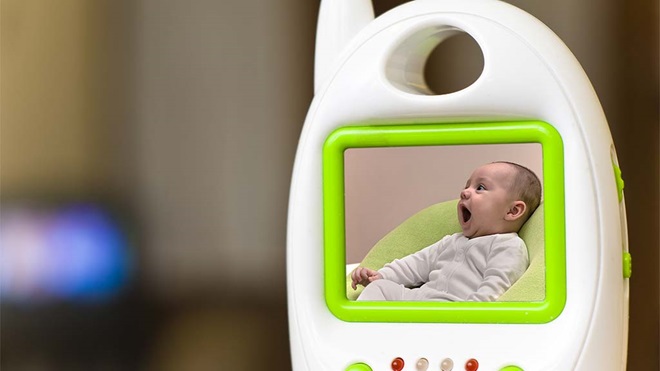Baby monitors are handy to have, particularly if you've got a larger place and your baby isn't always in earshot. Most monitors these days are video-enabled too, with cameras accessible through your smartphone or parent device. But how effective are they?
On this page:
Our expert testers
With more than 15 years of experience, our expert testers are the bees' knees of children's product testing. They've seen all the brands and varying cot configurations on the market, and have put each to the test. Our testers also sit on the Australian Standards committees for children's products.
How we choose what we test
Most of the time, we test what you'll see in the retailers. Our baby monitors typically come from brands you'll see in mainstream nursery or department stores, or ones that feature prominently when you search for them online.
To come up with our list, we survey manufacturers to find out about their range of models take member feedback on board. Our buyers then purchase products as you the consumer would, either in-store or online. This is to ensure that products we receive have not been 'tweaked' in any way, or received special treatment during transit.
How we test baby monitors
Baby monitors need to give you a reliable signal when they're in use, with a clear picture that works in differing light conditions. Some Wi-Fi enabled baby monitors use a smartphone or tablet as the carer device, or give owners the option to use an app. Where applicable, our scores are based on the app that is associated with the product.
When testing baby monitors we look at the following.
Sound performance
When determining the sound performance score, we put the monitors through a series of tests to determine:
- how well the baby unit can pick up soft sounds
- how well the carer (parent) unit can reproduce that sound.
We also test the range of the unit and see how well it works through walls. We do not assess Wi-Fi range, as this variable means we're essentially testing third-party modem/routers that do not reflect the quality of the baby monitor and its viewing device. This is too inconsistent due to the variety of options, and is not part of the test.
With this is mind, we give models with Wi-Fi capability 100% in the range scores. Results may vary depending on your Wi-Fi coverage and modem/router quality.
For app-based products, we define the carer unit as the tablet/phone. We use common phones on both iOS and Android platforms for our tests, so your experience may be different depending on the smartphone/tablet you use.
Picture quality
We assess the quality of the picture in daylight, dim and dark conditions. Many video-enabled baby monitors have an infrared feature that allows you to see baby in the dark, albeit at high contrast and in black and white.
Monitors that don't have this feature, such as ones which use your phone/tablet, will score zero for visibility in the dark.
If the baby monitor does not include a monitor, we assess quality on a smartphone/tablet. Note some models only connect to a smartphone/tablet.
Ease of use
We take a number of aspects into account when assessing ease of use, and we rate both the parent (carer) unit and the baby unit (which is kept in the nursery). Our assessments include:
- handling, positioning and adjusting the settings (cameras and viewing device)
- camera placement, mount type, ease of mounting.
- ease of safely and easily accessing batteries and connecting any mains adapters (cameras and viewing device)
- whether the parent and baby units are adequately sized, intuitive to use and suitably-sized.
Test criteria explained
Recommended
To be a Recommended product, a baby monitor must score well for:
- ease of use
- sound performance
- picture quality (if available).
Baby monitors that score 85% and above are recommended.
Scoring criteria
For audio/video products, the overall score is made up of:
- picture performance (30%)
- sound performance (40%)
- ease of use (30%).
For audio-only products, the overall score is made up of:
- sound performance (70%)
- ease of use (30%).
Stock images: Getty, unless otherwise stated.



